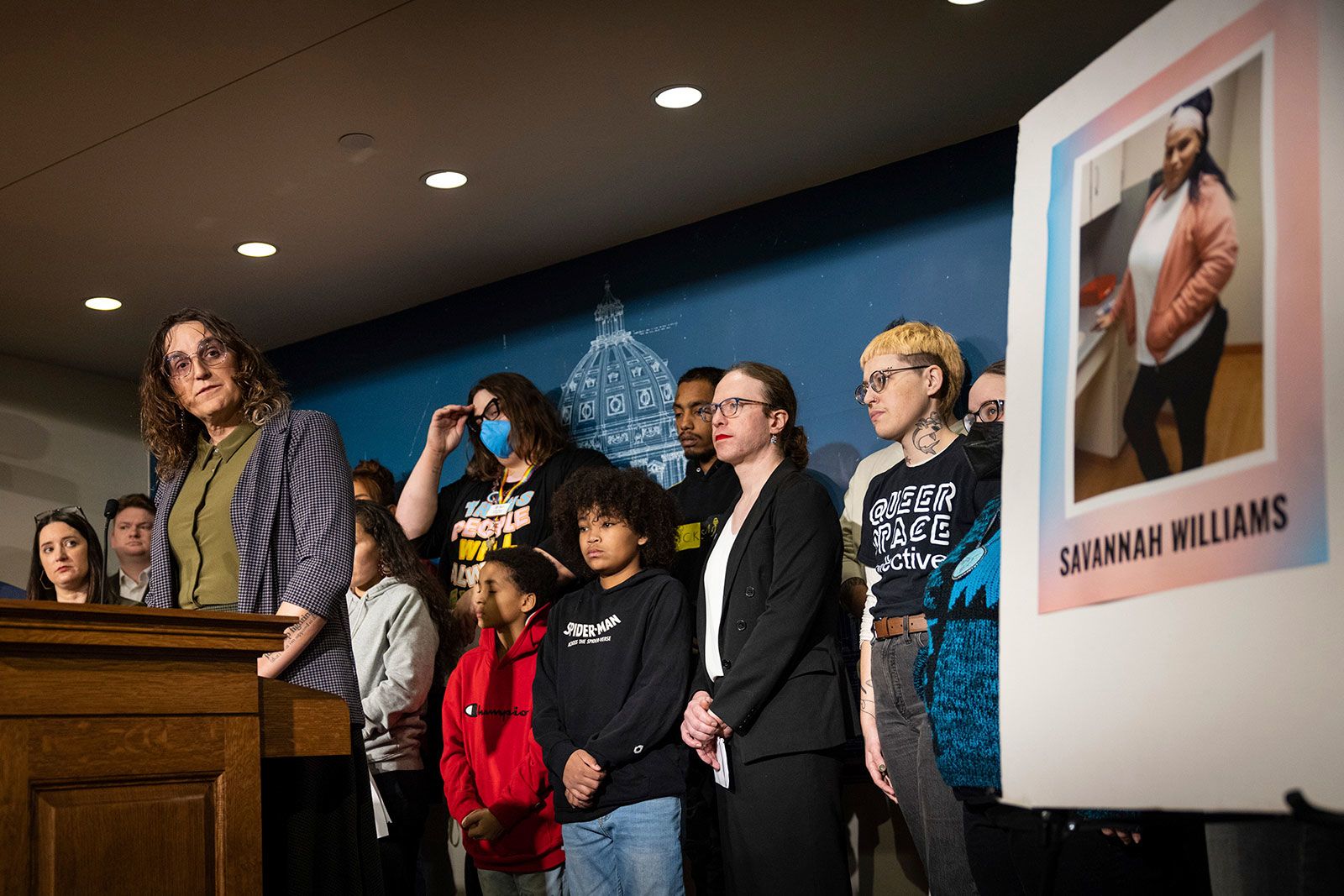
By Rikki Klaus, CNN
(CNN) — Prosecutors in Minneapolis are investigating whether the killing of a transgender woman last month should be charged as a hate crime, as local activists said the death has amplified safety concerns for some in the city’s transgender community.
Savannah Williams was shot in the head on November 29, and a man has been charged with second-degree murder in her death, according to a criminal complaint.
“If the investigation reveals sufficient evidence to prove bias motivation beyond a reasonable doubt, we would prosecute accordingly,” Hennepin County Attorney Mary Moriarty told CNN in a statement.
The suspect, identified as Damarean Kaylon Bible, 25, admitted to investigators he shot Williams in the head “from mere inches away” following a sexual encounter, according to the complaint, which notes he faces up to 40 years in prison if convicted.
CNN has sought comment from Bible’s attorney.
Williams’ sister, Gabrielle Stillday, described her at a news conference last week as a “beautiful soul” with a big heart who was loved by her family.
“Savannah is our superstar,” Stillday said, adding, “Savannah meant the world to me and my kids.”
Williams was of Native American and Cuban descent, according to her family.
Minnesota state Rep. Leigh Finke, who is the first transgender woman to be elected to the state’s legislature, said she finds it “hard to imagine that this crime is not related to Savannah’s Two-Spirit, trans identity.”
Some Native American people who are members of the LGBTQ community use the term “two-spirit” to self-identify. The umbrella term, which emerged in the 1990s, refers to people in many Indigenous and Native American groups who historically had both a masculine and feminine spirit, and who filled specialized social and spiritual roles.
“Traditionally, Native American two-spirit people were male, female, and sometimes intersexed individuals who combined activities of both men and women with traits unique to their status as two-spirit people,” the US Department of Health and Human Services’s Indian Health Service website states.
Finke, who also serves as the chair of the legislature’s Queer Caucus, acknowledged it’s up to prosecutors and investigators to determine whether the incident was a hate crime, but said she supports the efforts of advocates and Williams’ family to raise awareness about her death.
Finke said Williams’ killing adds to two other violent attacks against transgender people in Minneapolis this year.
“This is the third high-profile (case of) violence in Minneapolis against queer and trans communities,” Finke told CNN. “There was another assault at a train station very close to where Savannah was murdered, of a trans woman.”
The pattern of attacks in Minneapolis has created a sense of fear and tension in the community, according to Amber Muhm, an outreach specialist with The Aliveness Project, an organization in Minneapolis supporting people living with or at high risk of HIV.
“It 100% is a hate crime,” Muhm said. “We need to be able to walk down the street and be safe. We need to be able to exist in public and not constantly be afraid for our lives.”
Muhm said Williams had attended the organization’s “Tea Time” support group for trans women and trans femmes, which Muhm co-leads.
“Savannah was a loving partner, family member, and friend. She was full of life, wickedly smart, kind and tender,” The Aliveness Project said in a statement on Instagram.
“The loss of yet another member of our trans community is a source of deep pain for all of us,” it added.
CNN’s Nicole Chavez and Elizabeth Wolfe contributed to this report.
The-CNN-Wire™ & © 2023 Cable News Network, Inc., a Warner Bros. Discovery Company. All rights reserved.



